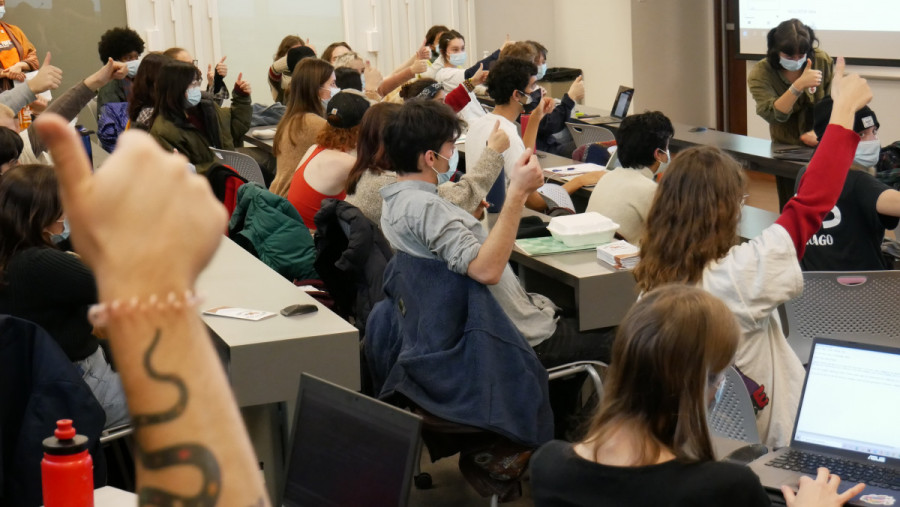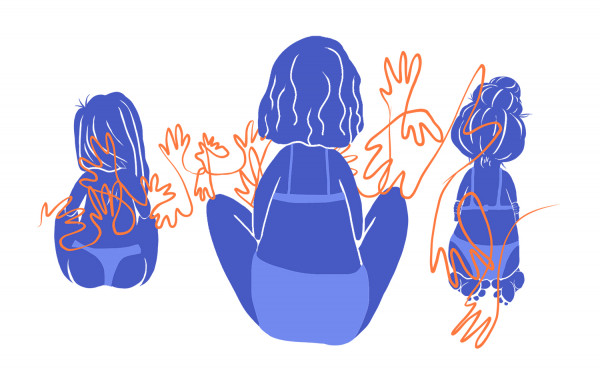Students form a new coalition to democratize McGill University
Community says their voices aren’t being heard
McGill community members gathered for an assembly on the democratization of McGill University on Friday, Nov 19. After two hours of discussion, 70 people in attendance unanimously voted for the formation of a new coalition calling to democratize the university’s decision making body.
The community assembly was organized by Divest McGill, a student group that has been calling on the university to divest from the fossil fuel industry since 2012. After nearly a decade of advocating for divestment–and continuously being blocked by the university’s highest governing body–they say the idea to champion democracy at McGill was born.
“We have reached a boiling point. We are now fighting for a democratic university: A change in the governance structure as the only way to change McGill’s relationship with the fossil fuel industry,” said Divest McGill in a statement prior to the assembly.
McGill’s largest body of elected representatives, the McGill University Senate, voted for divestment in 2018. But McGill’s Board of Governors–which has final authority over the conduct of all academic, business, and financial affairs of the university–has rejected all calls for divestment.
McGill’s Board of Governors is composed of 25 voting members, 17 of which are unelected. Of the eight elected members, two represent McGill’s student body.
“The community itself has virtually no say in our university,” said Geneviève Doiron, an environmental studies student and member of Divest McGill. “Our first interaction with that was through Divest [McGill], but that’s only one of countless examples of the harm that this governing structure causes.”
The community assembly was a change for Divest McGill, bringing together students and other McGill community members to voice their broader grievances with the university.
“McGill is run as a business, it’s for-profit, it’s not for the bettering of the community,” said Dorion. “And so we wanted to have this [general assembly] to build solidarity and move towards action.”
“We have reached a boiling point. We are now fighting for a democratic university: A change in the governance structure as the only way to change McGill’s relationship with the fossil fuel industry,” — Divest McGill
In a lecture room of the McGill Arts Building, up to a hundred people shuffled through over two hours. Discussion groups were formed and each group shared their main grievances and suggested solutions.
Students voiced their concerns around mental health services, housing costs, the university’s response to COVID-19, the James McGill statue, barriers of accessibility, mechanisms of accountability and compensation at the university.
Throughout the assembly, attendees voted using their thumbs for each grievance or proposition shared. The method for voting used was consensus minus one, meaning a proposition could only be passed if everyone voted for, with the exception of one vote against.
“We realized we can’t call for a democratic university through an undemocratic process,” said Alexia Wildhaber-Riley, another member of Divest McGill. They say the assembly was the first step of many towards a greater conversation around democratization.
As the assembly came to a close, 70 people unanimously voted for the creation of a new coalition calling for the democratization of McGill University, taking this movement out of the hands of Divest McGill. The new coalition will bring together members of the McGill community and various interest groups, like Divest, with a central goal of greater democracy at the university. The room burst into cheers.
“I think it’s really important that there be more democracy,” said Daniel Tamblyn-Watts, a McGill law student who attended the assembly via Zoom.
“The students and the faculty should be the ones making these decisions because, frankly, we would make better decisions,” said Tamblyn-Watts.




2014_600_375_90_s_c1.jpg)


-750x500_600_375_s_c1.png)